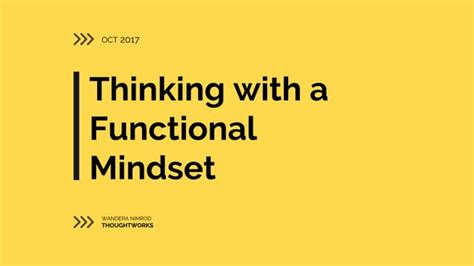Learning a new programming paradigm can be a long and arduous journey, often laden with philosophical intrigues and paradigm shifts that challenge your previous notions. This sentiment rings true for many who have dived into functional programming through the lens of languages like Haskell. While the statement ‘I learned Haskell in just 15 years’ might be delivered with a tongue-in-cheek attitude, it’s worth delving into the richness and profundity that functional programming offers. Haskell, with its strict purity and strong emphasis on mathematical rigor, serves as a gateway to changing how we think about writing software.
The journey into Haskell often starts with a keen interest in its noticeable merits—a powerful type system, referential transparency, and a strong emphasis on pure functions. These characteristics make Haskell especially appealing for building robust, maintainable, and bug-resistant code. The notion of writing functions that, given the same input, always produce the same output without side effects, is a powerful tool for a developer’s arsenal. Functional programming, Haskell particularly, can seem overwhelming for beginners due to its steep learning curve and unfamiliar concepts, but the payoff is an intrinsically rewarding paradigm shift in one’s approach to problem-solving.
Interestingly, community contributions suggest that while Haskell stands as a beacon of functional purity, other languages like F# might offer a more accessible entry point for those new to the concept. F# integrates functional programming within the .NET ecosystem, allowing for object-oriented programming (OOP) when necessary. This mixed-paradigm approach can offer a gentler learning curve while still imparting the core lessons about immutability and pure functions. One commenter recommended F# over Haskell for beginners, highlighting its flexibility to support both functional and object-oriented styles without demanding that every function be pure.
For seasoned developers who might prefer learning through practical application, languages like F# and even OCaml offer a pragmatic approach. Here, you’re not just limited to mathematical abstractions but can integrate functional principles into real-world scenarios more seamlessly. For instance, F# is praised for how it makes modelling business domains and reasoning about side effects simpler, even while interacting with .NET APIs. However, some developers voiced frustration with antiquated .NET API support for common serialization formats, emphasizing that no language is without its quirks.
The debate over productivity gains from functional programming languages like Haskell versus imperative ones like Python or even more general-purpose languages like Java remains heated. One interesting perspective shared by a commenter is that functional programming doesn’t inherently make problem-solving 10x faster across all domains. Instead, the real value lies in the conceptual clarity and prevention of common bugs that functional programming encourages. These lessons are transferrable and can significantly enhance how you design software in any language, turning tough problems into manageable ones through thoughtful abstractions.
Examples of practical applications built with Haskell, such as Pandoc for markdown conversion, demonstrate that Haskell isn’t merely an academic exercise but can be used to create highly functional, real-world tools. Other niche applications, like Shellcheck or Postgrest, serve specific communities but highlight Haskell’s potential for delivering robust software solutions. Despite this, Haskell lacks a ‘killer framework’ akin to Rails for Ruby, which has limited its headway into mainstream software development.
Ultimately, what Haskell and functional programming promise is a disciplined way of thinking about software design. As developers grapple with concepts like monads, catamorphisms, and even recursion-schemes, they stretch their problem-solving capabilities to new horizons. The battle of paradigms—functional versus imperative, pure versus impure—is also a testament to the evolution of programming languages over time. So whether you choose Haskell, F#, or another language, the essence lies in understanding and embracing the key principles that functional programming advocates for: immutability, compositionality, and a declarative approach to solving problems.


Leave a Reply